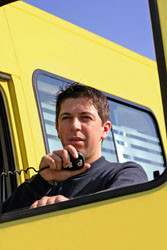Enhancing wireless communication in emergency and disaster relief
Ever since the advent of wireless radio communication, emergency crews have been able to respond more quickly to hazards and disasters. Yet despite major advances, communication systems still fall short in many situations as they lack interoperability, become easily overloaded in emergencies and often fail to support crucial broadband data transfer. The EU-funded HELP (Enhanced communications in emergencies by creating and exploiting synergies in composite radio systems) project sought to overcome these limitations. HELP created an advanced wireless system for disaster relief based on convergence of different technologies, to be used particularly in the immediate aftermath of a crisis situation. After studying operational scenarios and deriving user requirements, it outlined system needs such as interoperability, networking and security. The team defined relevant concepts such as network sharing and spectrum sharing. After defining the concept and its technical implications, HELP articulated a framework to manage the emergency network. Project partners conducted a feasibility study on the framework based on various management levels and principles. The project carried out an analysis to understand the economic effects of the technical solutions on relevant actors such as administrations and network operators. This led to recommendations for new business models. Project members fine-tuned the proposed solution to achieve better public safety communications by defining a roadmap. They also implemented a targeted dissemination campaign to gain the awareness and support of European industry, the research community and end users. To this effect, links were established with regulatory and standardisation organisations, relevant EU bodies and related EU-funded initiatives. Two workshops were also organised to present project outcomes and developments. HELP created a comprehensive solution to support public safety communications and radically improve communication resilience and responsiveness in emergency situations.
Keywords
Wireless communication, emergency, disaster relief, radio systems, safety communications



